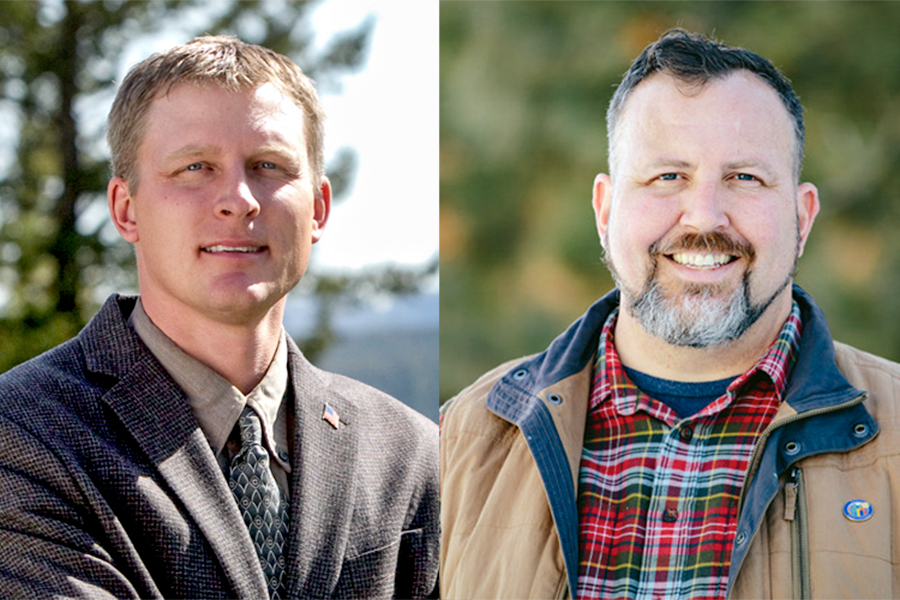In Montana’s Senate District 2, which comprises the North Fork Flathead River and the canyon tracking between Columbia Falls and West Glacier and extending to Essex, a full array of interests figure prominently into the diverse landscape — from timber and agriculture to tourism and land access.
Currently represented by Republican Sen. Dee Brown, who has reached her term limit and cannot run again, the open seat has drawn two candidates who both pledge to protect those interests but offer competing visions on how best to do so.
Republican Carl Glimm, 45, a custom homebuilder, has represented House District 6 since 2013 and can’t run again because of term limits. He’s turning his attention to the state Senate as the next step in his journey of public service, and hopes to build a higher degree of efficiency into state government, particularly as the state economy reels from the impact of the coronavirus pandemic.
Glimm said he’s hopeful a new Republican administration in the governor’s office will help rein in spending.
Democrat Kyle Waterman, also 45, currently serves on the Kalispell City Council and the Flathead City-County Health Board, where he’s helped oversee local public decisions related to the coronavirus pandemic while helping to relocate a small business, World Spice Merchants, from Seattle to the Flathead Valley in recent years.
On his decision to deepen his commitment to public service by running for the state Legislature, Waterman said he’s eager to represent a segment of the Flathead Valley that is distinct for its economic diversity, and can be painted with too broad a brush by the state government in Helena.
“This Senate district includes the major river corridors, the airport and the unique businesses all the way to Essex, and then north to Polebridge and the Canadian border,” he said. “There’s a connection between business leaders in the city, as well as ranchers and farmers and tourism-dependent economies, that you don’t see elsewhere.”
While Waterman said fiscal responsibility is a top priority, he said the state should invest in teachers and schools as “important pillars in our community” that bring high returns, while working to protect and enhance access to public lands.
Both candidates expressed strong support for public lands and access, but offered differing views on the degree to which state government should be involved.
Glimm pointed to the large landscape-scale conservation easements proposed west of Kalispell by private and public entities as something he supports, but was more skeptical about a state proposal to create a Wildlife Management Area in Bad Rock Canyon near Columbia Falls.
Waterman said the steady increase in visitation to Glacier National Park, and the uptick in outdoor recreation in general, should be met with investments in public access points, including boat ramps, horse hitches and parking lots, all of which feeds into a more robust tourist economy.
